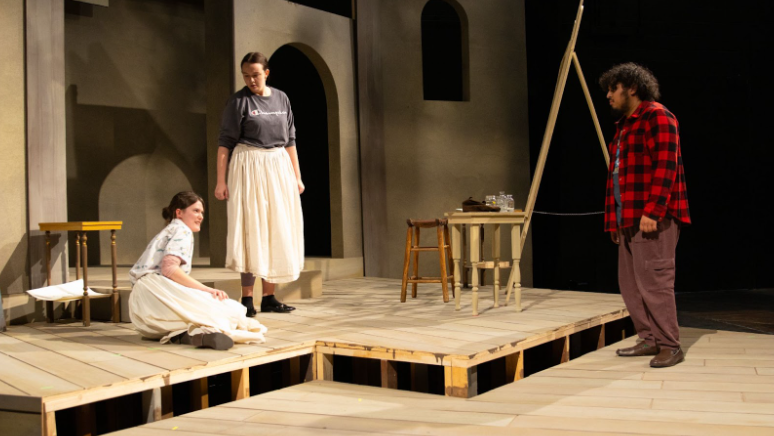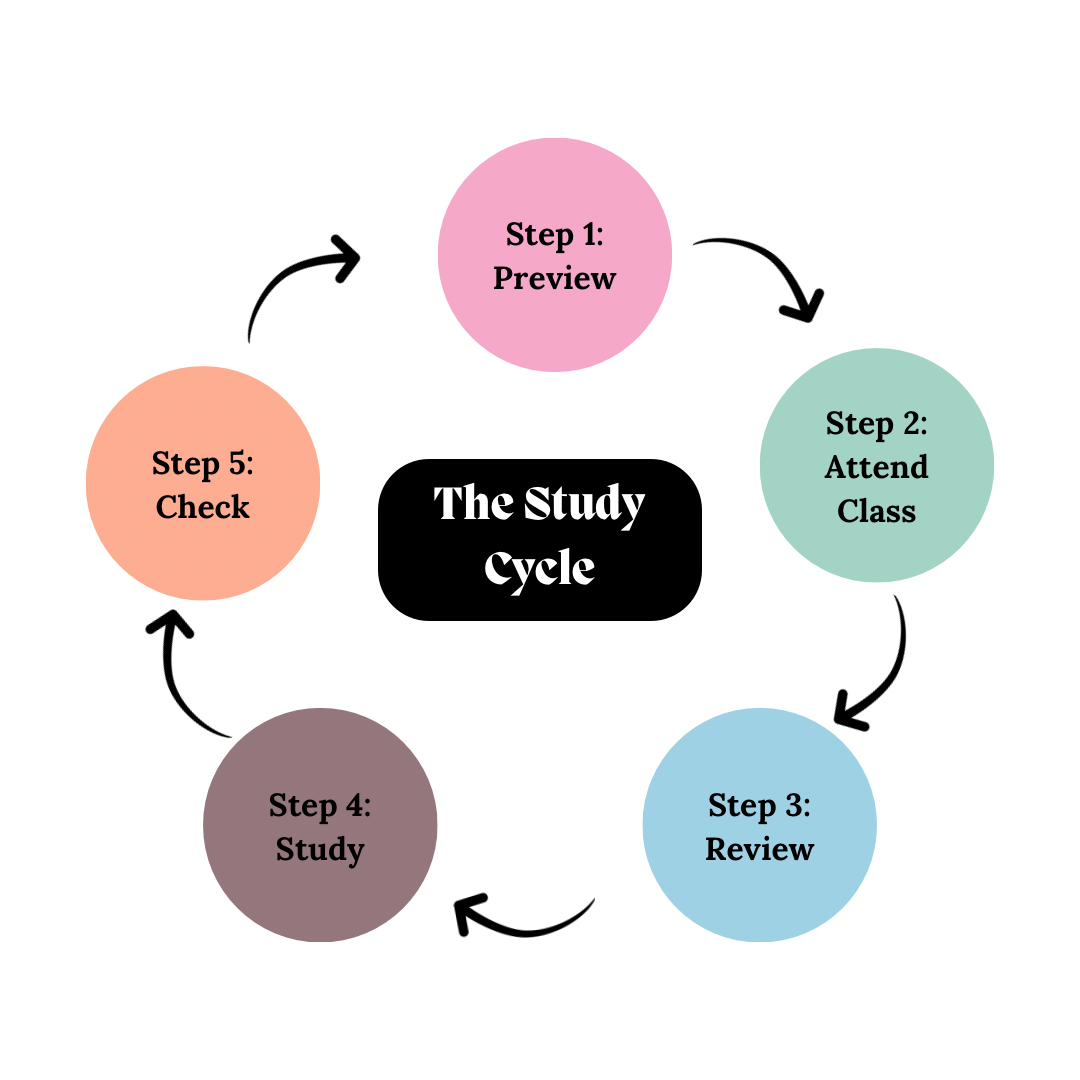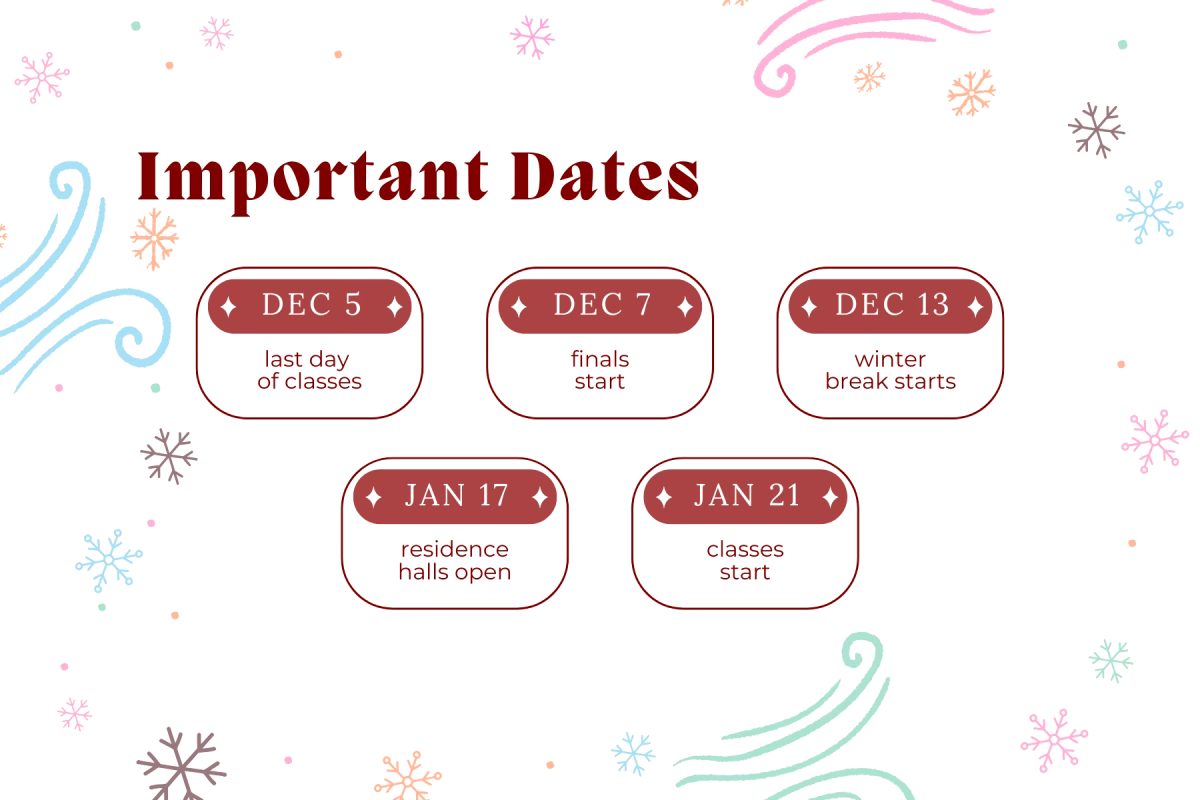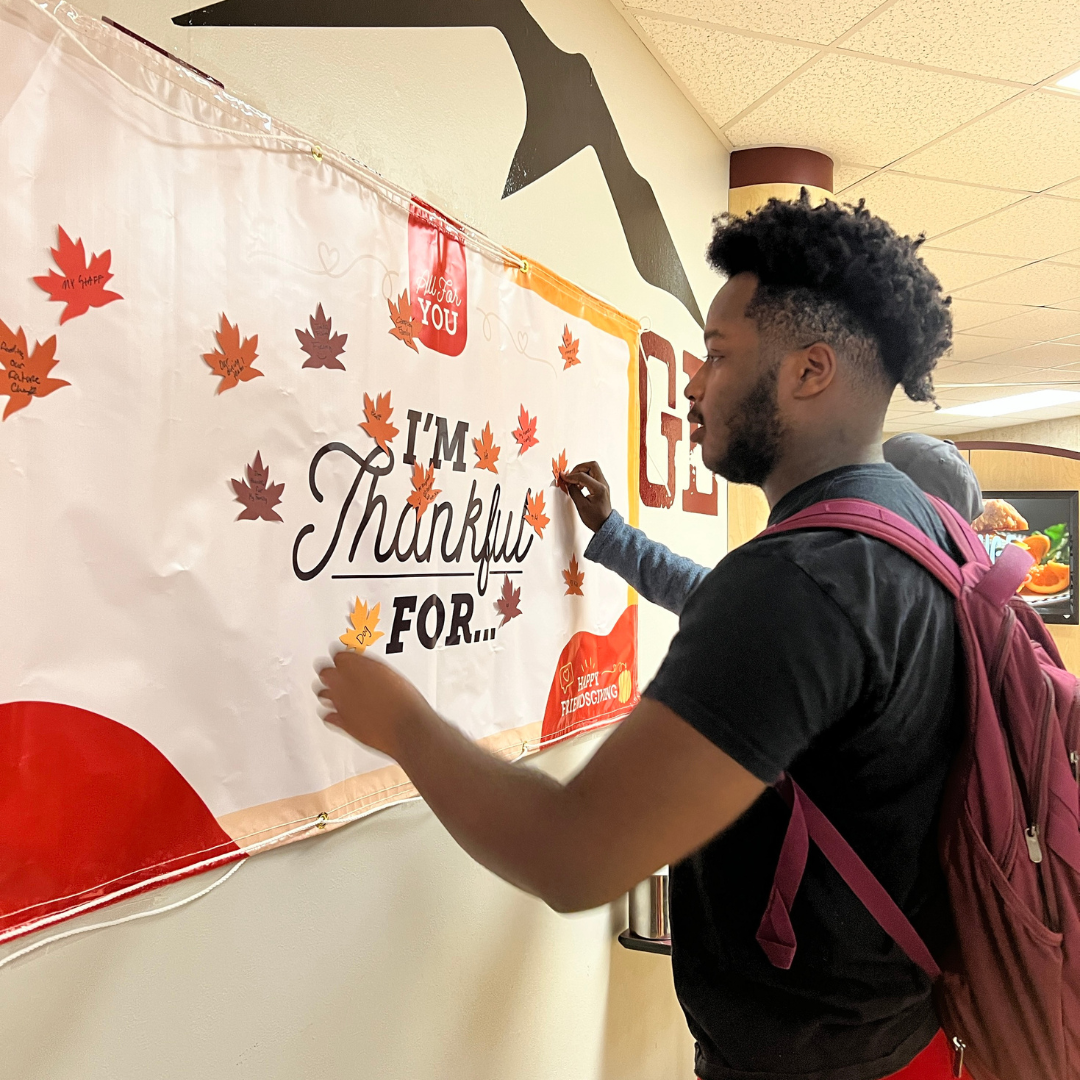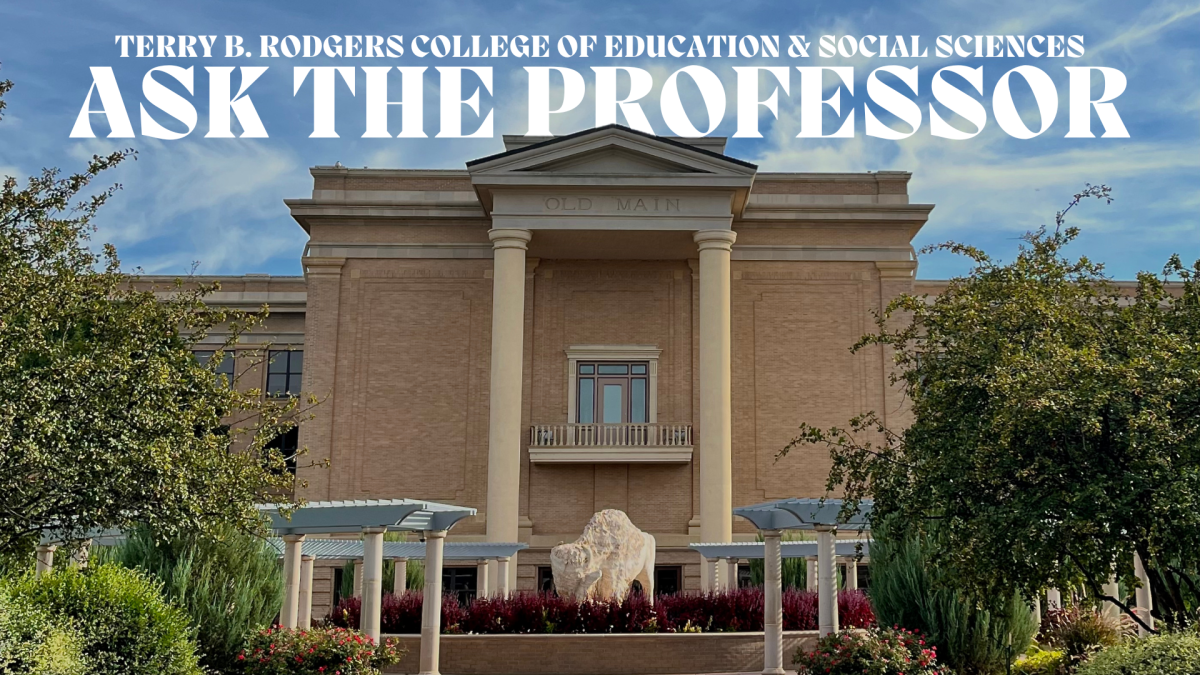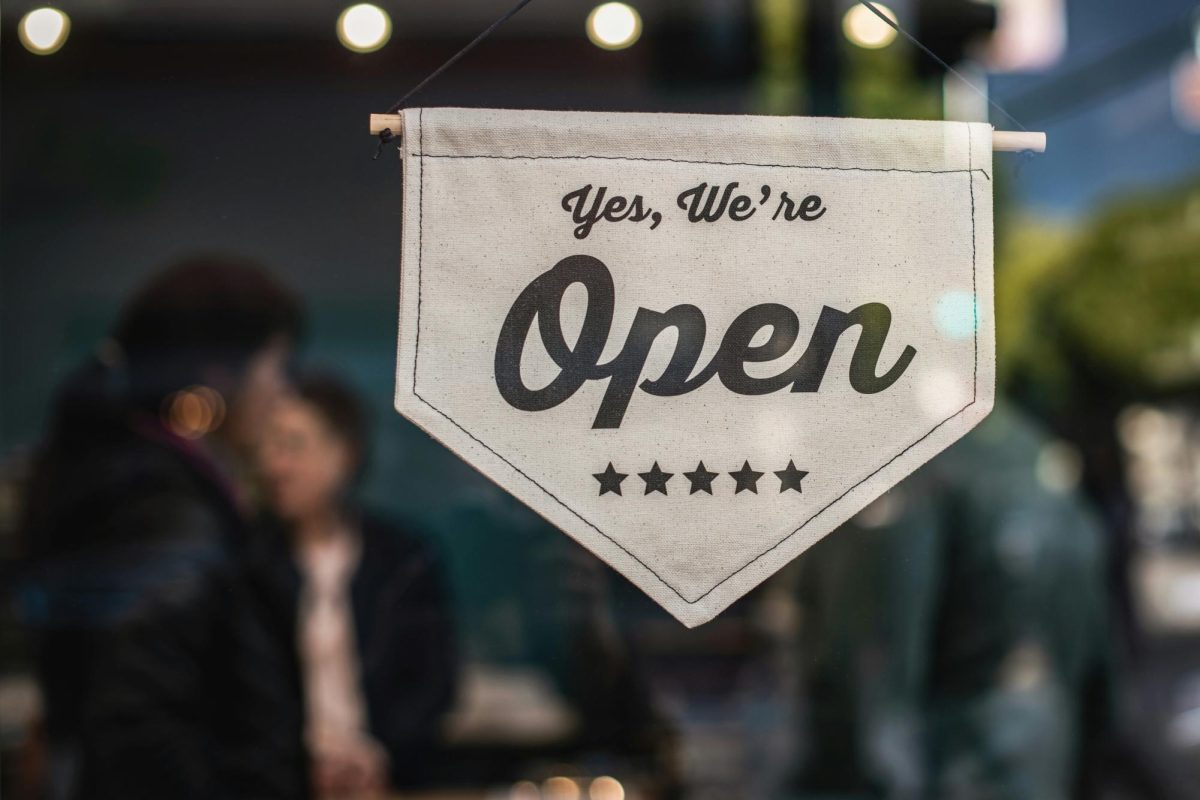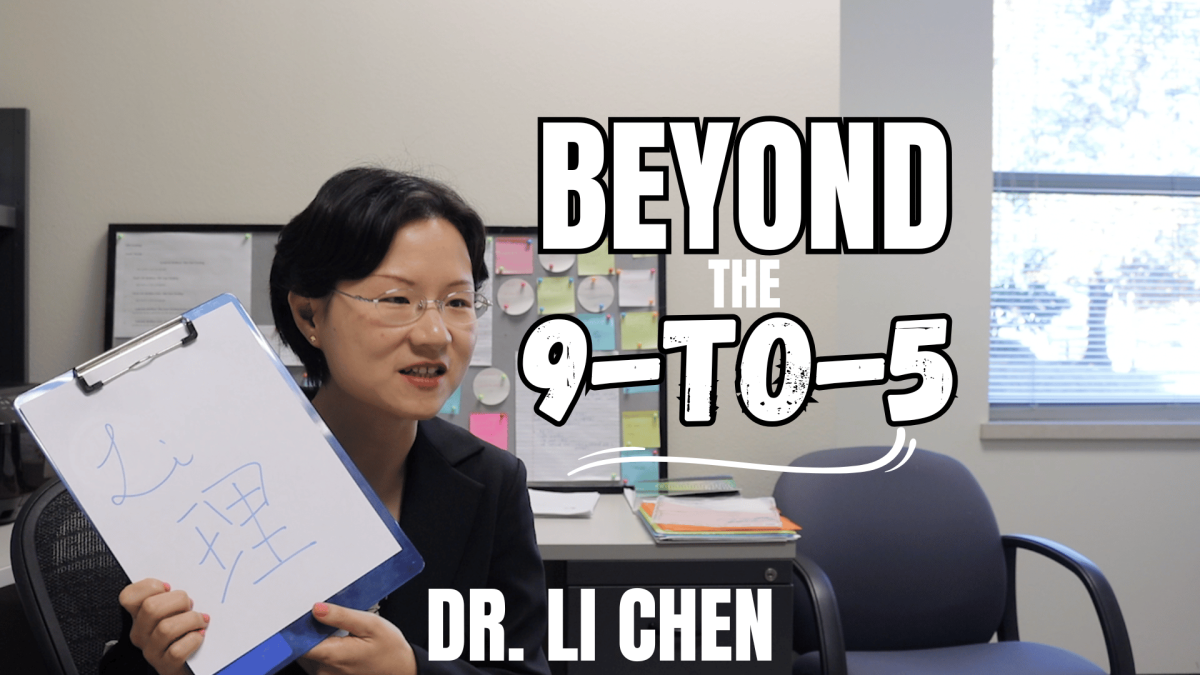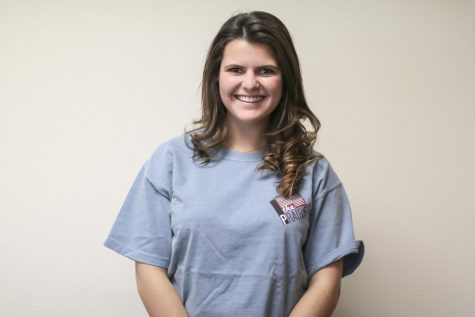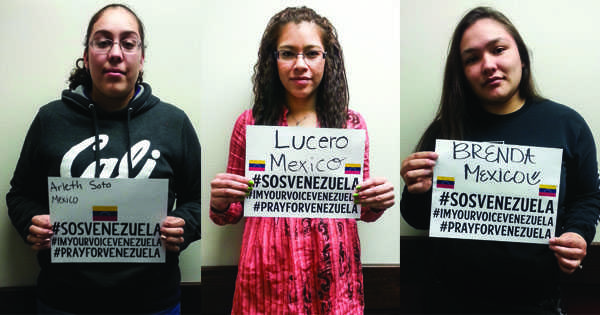
On Feb. 12, protests in Venezuela garnered worldwide attention when three protestors in Caracas, Venezuela, were shot and killed by police. Since then three more people have died in the midst of protests and demonstrations and four others have died as the result of a spike in violent crime.
The protests began with students demanding protected freedom of speech, easier access to basic goods such as food, gasoline and toilet paper and better security at universities after the attempted rape of a female student. The poor economic affairs of Venezuela are also fueling the protests. The protestors, most of whom are college students, are now also calling for Venezuelan president Nicolas Maduro’s resignation. The protests are being met with violence by police and military forces.
For one West Texas A&M student, the protests and violence swirling within Venezuela hit a little too close to home. Jamie Bermudez, a junior majoring in Mechanical Engineering, is an international student from Venezuela.
“[There is] nervousness and anxiety every day because I have family and friends there,” Bermudez said. “I know they are going to protests where anything can happen.”
Venezuelan president Nicolas Maduro, who replaced the late Hugo Chavez, was voted into office in April 2013 and won against Henrique Capriles by a narrow margin. Maduro currently holds the support of the Venezuelan police and military force.
“[The government is] using political power and armed forces to silence any counter opinions or protests,” Bermudez said. “It is unconstitutional.”
What began as a small group of university students protesting what they believed to be unfair treatment by their government has erupted into a nationally spread cry for reform.
“They are afraid that if they do not stop the government right now, it would get so powerful that it will be almost impossible to defeat it,” Bermudez added.
Dr. Wade Shaffer is a professor in West Texas A&M’s History Department and Provost/Vice President of Academic Affairs. He had an interesting take on the developments.
“Student protests have often not led to significant or long-term reforms in the past,” Dr. Shaffer said. “There are exceptions, of course, and sometimes students are out front in protesting and the rest of the nation eventually catches up to them.”
Students who are not from Venezuela or other South American countries have also taken notice of the violence in the country.
“It’s interesting that it’s the young people that have started the movement,” Kathryn English, a freshman Political Science major, said. “This definitely echoes what we’ve seen in the Middle East and Brazil.”
As for how the rest of the world can intervene in the increasing tensions in Venezuela, Jamie Bermudez stressed the importance of prayer sent to the protesters and Venezuela as a whole.
“My country needs international help to get out of this mess and by sharing the information of what is happening there, anybody can help this cause,” Bermudez said.
Despite the protests, violence, and danger to his loved ones, Jamie Bermudez still admires the sacrifices the people of Venezuela are making for their freedom.
“I am proud of what the people and the students are doing to help the country out, stepping up for a cause like that,” Bermudez said. “They are all real heroes.”



